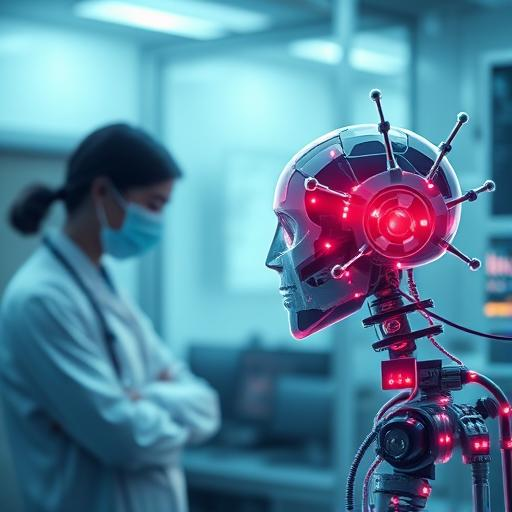AI has a huge influence on healthcare. It’s changing how doctors spot diseases, plan treatments, and manage hospitals. AI brings many good things, but it also creates some problems. Let’s break this down in plain language, so you can understand how AI is shaking up healthcare right now.
1. AI Helps Doctors Spot Problems
AI allows doctors to make more correct diagnoses. Take medical scans like X-rays and MRIs. AI can check these faster and better than people can. It searches for signs that might be tough to see such as tumors or broken bones. This means doctors can find issues sooner, which helps patients get better.
2. Treatment Plans Just for You
AI has an influence on creating personalized treatment plans. By examining a patient’s medical records, habits, and even genetic data, AI can recommend the most suitable treatment choices. This allows each patient to get a treatment plan designed for them boosting their recovery prospects.
3. Helping Patients Stay Healthier
AI enables doctors to monitor a patient’s health . For instance, AI can track vital signs such as heart rate or blood pressure and notify doctors of any issues. This allows doctors to step in avoiding complications and enhancing overall care.
4. Making Healthcare More Efficient
Hospitals and doctors’ offices deal with tons of data and paperwork. AI has an impact on tasks like booking appointments keeping patient files, and handling insurance paperwork. When these jobs are done by machines medical workers can give more attention to patients, which leads to better healthcare.
5. Quicker Drug Development
Making new medicines takes years and costs billions. AI speeds this up by looking at info about illnesses and drugs. It can guess which treatments might work best saving time and cash in the hunt for new medicines. This means life-saving drugs could get to sick people faster.
6. Getting Healthcare Anytime Anywhere
AI has an influence on improving access to healthcare. Take virtual health assistants and chatbots as an example. These tools help patients with basic medical questions or advice whenever they need it. When someone feels under the weather, they can talk to an AI assistant to get guidance before they see a doctor. This makes healthcare easier to get and more convenient.
Challenges of AI in Healthcare
While AI offers many advantages, some issues need solving to make it work better for everyone.
1. Protecting Patient Privacy
AI has to deal with a lot of private info, like health records. Keeping this data safe is key. If someone hacks a hospital’s system, it could put patient privacy at risk. Healthcare providers must make sure patient data stays protected while using AI systems.
2. Stopping Bias in AI
AI systems learn from data. If the data used to train AI isn’t complete or has bias, the AI might make mistakes. For example, if the data doesn’t represent all groups, the AI may not work well for everyone. It’s essential to use varied data to ensure AI is fair and correct for all patients.
3. Rules and Regulations
As AI plays a bigger role in healthcare, we need clear rules about its use. For instance, who bears responsibility when AI makes an error? Governments and organizations should establish guidelines to make sure AI is used and in healthcare.
4. AI and Healthcare Technology Integration
Healthcare systems are often complex. Many hospitals already use various software and technologies. Adding AI to these systems can be challenging. We need to ensure AI tools work well with existing systems to avoid issues and keep operations running .
5. Educating Healthcare Professionals
While doctors and nurses know a lot about healthcare, many might not know how to use AI tools well. This makes it essential to train medical staff so they can make good use of AI. When people working in healthcare get how AI functions, they can use it to make smarter choices for the people they treat.
6. The Cost of AI
Setting up AI can cost a lot especially for smaller health centers. Hospitals need to put money into new tech, teach their staff, and make their systems better, which can be tough on their budget. But as more places start using AI, we think its price will go down. This should make it easier for more health centers to start using it too.
